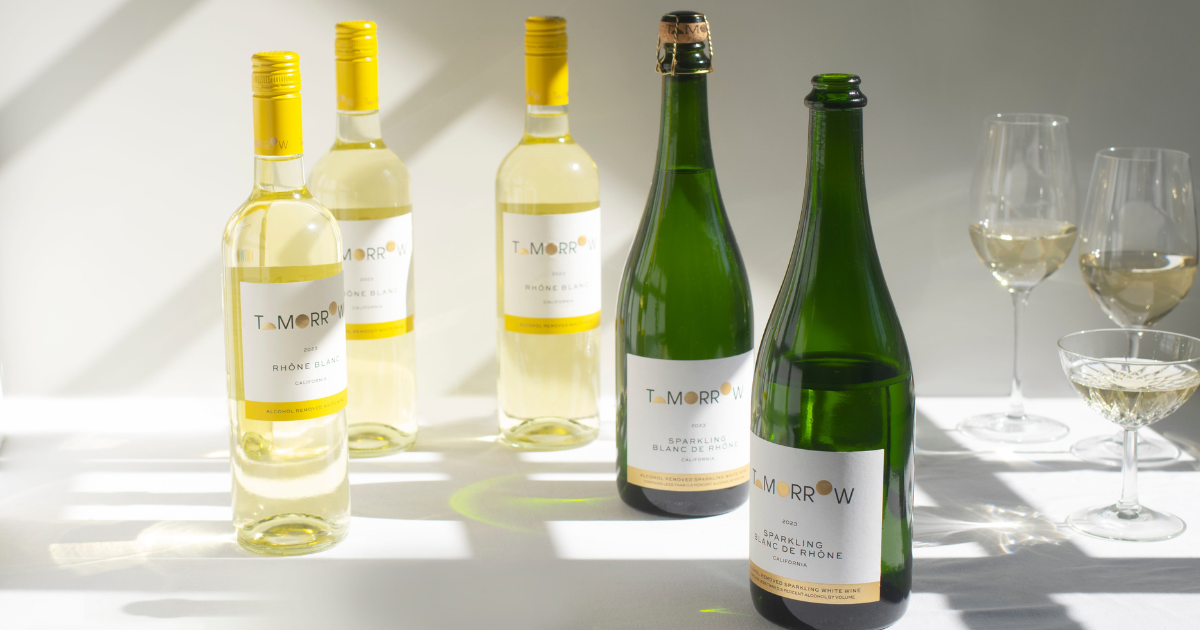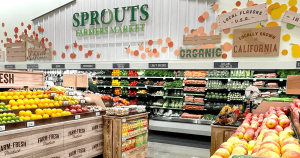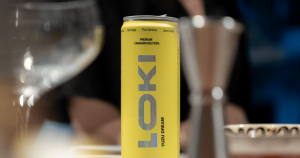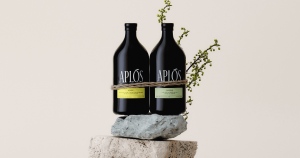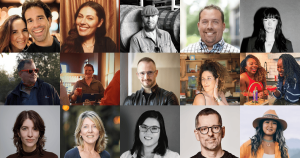Partner Content: Tomorrow Cellars
By Tracy Sweeney, Co-Founder, Tomorrow Cellars
Tomorrow Cellars was born in the heart of wine country, and naturally, we got many questions from our friends and neighbors in the industry. Did we no longer drink wine? Were we trying to put them out of business? What was the point of wine without alcohol?
The answers to the first two questions are simple—no. My co-founders, David and Jen Risher, and I still enjoy traditional wine, and firmly believe there is a time and a place for it. We built Tomorrow Cellars because we love wine, and sometimes want to be able to enjoy it without the alcohol.
Regarding whether we’re trying to put the wine industry out of business, the answer is again no. The wine business is personal to me. I met my husband in this industry, and I raised my family in the Napa Valley. Wine has played a central part in our lives for a very long time. There’s no doubt, however, that it’s a challenging time for the wine industry. I can understand why some of our colleagues may ask the question. Consumers are not choosing wine at the frequency they once did, and younger generations aren’t embracing alcohol like those before them did. Consumers are looking for options.
We see non-alcoholic wine as part of the solution, not the problem. There is always a good time for wine, just not always for alcohol. If we’re successful, we’ll have helped broaden the category rather than contribute to its shrinking. To borrow an analogy from our friend Nick Bodkins at Boisson, we want non-alcoholic wine and traditional wine to co-exist in the same way coffee and decaf coffee do. They belong in the same space, serve a similar purpose, and deliver nearly the same experience.
Starbucks doesn’t see decaf coffee as a threat. It’s for consumers who want the sensory experience of coffee without the caffeine. Maybe it’s the office worker who wants a third cup at 4 PM but not to be awake all night, the breastfeeding mom who misses the taste, or the person trying to cut back on caffeine who loves the ritual of visiting the coffee shop.
Tomorrow Cellars will have made an impact when ordering a glass of non-alcoholic wine in a restaurant becomes as normal as ordering anything else. When the server no longer whispers, “You know that is non-alcoholic, right?” When you can find non-alc wines alongside traditional wines in the supermarket, and when wine store clerks recommend their favorite non-alc wines from an extensive shelf.
As for the third question—what is the point of wine without alcohol?—it’s about wine’s unique ability to bring people together. When David first started thinking about starting a non-alcoholic wine brand, it was after his own Dry January experience. He began reflecting on wine’s role in his life and society. While he was stepping back from alcohol, he realized wine often serves as a reason to gather, a focal point of social events. Without it, he felt unable to fully participate in the experience. David recognized that gathering over a glass of wine is a potent antidote to the loneliness and isolation that pervade our digitally-connected world. He wanted a non-alcoholic wine that met his high standards and delivered the full experience of traditional wine.
Thanks to the Blue Zones project, which tracks the lifestyle factors that lead populations to live happily and healthily into their 100s, we know community and social connection is a key contributor to longevity. We also know from countless studies and articles that consumers want to moderate their alcohol consumption in pursuit of better sleep and better health overall. People are looking for delicious adult beverages that fit into a more mindful lifestyle. So, what’s the point of non-alcoholic wine? It’s to deliver the best of both worlds—to create opportunities for connection and community while giving people the choice to step back from alcohol when it makes sense.
For more from Tomorrow Cellars, visit their website.


